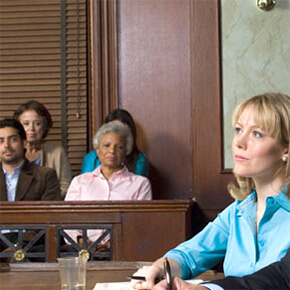
Contemplating Fraud Litigation? Not Without a CPA
You may already know how CPAs can help businesses uncover and prevent fraud. But what about when a fraud incident leads to civil litigation? An experienced CPA can help your legal team collect and summarize complex financial documents and reconstruct lost or stolen records. CPAs can also serve as expert witnesses in court.
From Investigator to Expert Witness
As a fraud investigation becomes a fraud case, CPAs can help identify critical evidence. They may also be enlisted to analyze and translate financial data for attorneys, insurers and other parties. These financial experts can be equally valuable with depositions by helping to frame questions that attorneys ask witnesses. They also are skilled at spotting inconsistencies and flaws in witness testimony.
Once a case gets to court, a CPA can serve as an expert witness to help shore up your position with a judge or jury. Courts aren’t interested in dry recitations of facts and figures. A good expert witness, therefore, puts the numbers in a framework that the judge and jury can understand. That framework is carefully constructed to demonstrate that the expert’s conclusions are logical extensions of the facts.
Plaintiffs and Defendants
A CPA uses different skills to bear on different types of cases. In civil actions, for example, plaintiffs must prove they suffered damages and then determine the extent to which the monetary loss from those damages was attributable to the defendant.
If your company is the plaintiff in a civil suit, a CPA can create a damage model based on factors such as your executive compensation compared with that of other companies, investment rates of return, conditions that affect your business results or other considerations appropriate to the business situation and case. Using that model, the CPA will determine monetary damages to your company.
If you’re the defendant in a civil suit, a CPA can review the plaintiff’s damage model and prepare an alternative estimate that supports your case. For example, the expert might use different tools to value your business and arrive at a lower assessment of the financial damage caused by fraud.
CPAs may also be able to help you stay out of court entirely if you and the opposing party agree that mediation or arbitration are preferable to long, costly litigation. In such cases, a CPA can act as an objective negotiator, helping you reach a financial settlement that both parties consider fair and acceptable.
Protecting Privilege
If you directly engage a CPA to work on a fraud case, understand that most communications between you and the expert aren’t privileged. Thus, you may want to have your outside attorney (rather than in-house counsel) retain the CPA to protect attorney/client communications.
Dannible & McKee, LLP has been providing litigation support and fraud and forensic accounting for over 40 years. Contact us for more information.
